Haleakalā is a volcano on the island of Maui. It’s also the name of the national park that dominates Hawaii’s second largest island. If you’ve never seen lava, a volcanic crater, or a flower that grows for 50 years, blooms purple, and dies within a few weeks, buy your tickets!
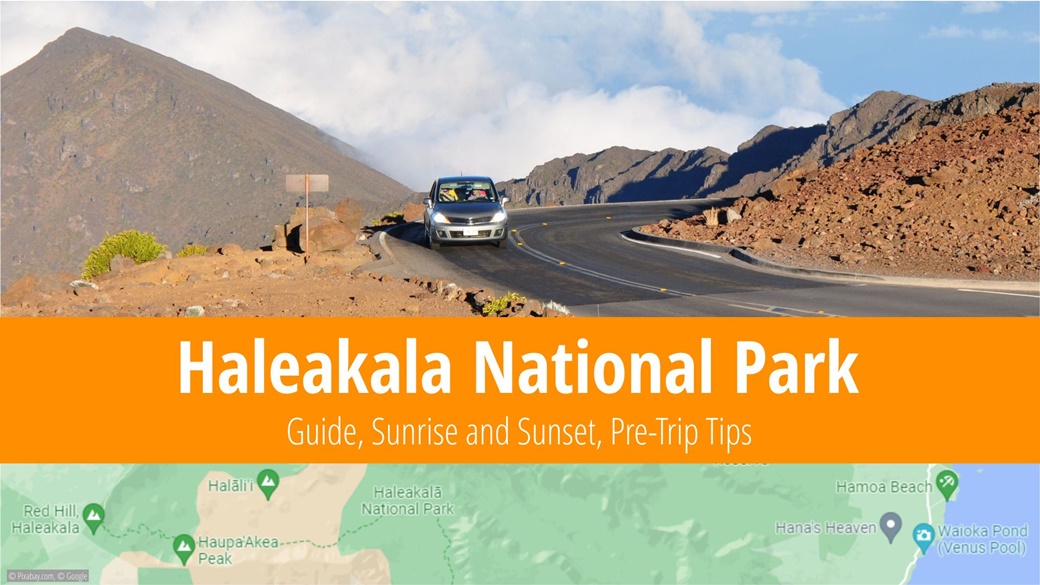
Table of Contents
- Information About Haleakala National Park
- What to See and Do in Haleakala National Park
- When to Visit Haleakala National Park
- Haleakalā National Park Entrance Fees
- How to Get to Haleakalā National Park
- Lodging in Haleakalā National Park
- Tips and Advice Before Traveling to Haleakalā National Park
- Photos of Haleakalā National Park
Information About Haleakala National Park
The park is located on Maui, the second largest island of Hawaii, and is about an hour and a half drive from Kahului, the most populous city. Covering an area of 45 sqmi, Haleakalā is one of the smallest national parks in the USA. In 2021, it welcomed 853,181 visitors.
Haleakala became a national park in its own right on July 1, 1961, when it was separated from the previously operational Hawaii National Park, which comprised Mauna Loa and Kilauea volcanoes. Following the split, it became Hawaii Volcanoes National Park. The name Haleakalā is derived from Hawaiian mythology, meaning “house of the sun”. According to legend, the Maui god trapped the sun on this island to prolong the day. At 10,023 ft, Haleakala is the highest point in the park.
Haleakala National Park is home to more endangered species than any other national park in the USA. The most famous of these is the Haleakala silversword, a plant made up of dozens of spiky leaves, which grows for decades before flowering and dying within a few weeks. Representing the animal kingdom are the Hawaiian goose, the scarlet tanager (known in Hawaiian as the ‘I’iwi), and the Hawaiian bulbul, also known as ‘Ua’u. Funny names indeed!
What to See and Do in Haleakala National Park
The park’s main attraction is the summit of Haleakala volcano at an elevation of 10,023 ft and its 2,592 ft-deep crater. The sunrise and cloud views from the summit, which is accessible by car, offer the best experiences. To enter the park at night, reservations are required.
Once you’ve climbed to the top of the volcano, explore the surrounding area. With over 30 mi of trails, there’s a rule of thumb for estimating how long a hike will take: it takes twice as long to hike uphill as it does to hike downhill.
The Halemau’u Trailhead is considered the main trail, extending up to 10 mi in one direction. For maps and other trails, visit the park’s website.
Stargazing is a popular pastime at Haleakala, thanks to the minimal light pollution and higher elevation. You can participate in this activity at one of the overlooks.
When to Visit Haleakala National Park
Haleakala National Park is open all year round. The first thing to note is the variability of the weather, a typical feature of places with differing altitudes. In Haleakala, this difference can be up to 10,023 ft. Generally, the temperature drops by 41 °F for every 3,281 ft above sea level.
In practical terms, this means that while it may be 81 °F in the town of Kīpahulu on the Atlantic coast, it could simultaneously be one degree below zero at the top of the volcano. A sunny day can quickly turn overcast with heavy rain.
Average Temperatures and Visitor Numbers in Haleakala National Park
Average temperatures in Haleakala National Park are based on a 2017-2021 average. The data source is the National Park Service.
| Max Temp | Min Temp | Precipitation Days | Visitors | Popularity | |
|---|---|---|---|---|---|
| January | 72 °F | 57 °F | 8.7 | 81 991 | 🟨🟨 |
| February | 72 °F | 57 °F | 8.0 | 82 491 | 🟨🟨 |
| March | 72 °F | 59 °F | 7.3 | 88 991 | 🟨🟨 |
| April | 73 °F | 61 °F | 5.7 | 87 001 | 🟨🟨 |
| May | 75 °F | 61 °F | 4.7 | 97 159 | 🟨🟨 |
| June | 77 °F | 64 °F | 3.7 | 97 382 | 🟨🟨 |
| July | 77 °F | 64 °F | 5.1 | 102 683 | 🟨🟨 |
| August | 79 °F | 66 °F | 5.3 | 93 675 | 🟨🟨 |
| September | 79 °F | 64 °F | 5.7 | 88 857 | 🟨🟨 |
| October | 77 °F | 64 °F | 6.9 | 72 723 | 🟨🟨 |
| November | 75 °F | 63 °F | 7.7 | 69 677 | 🟨🟨 |
| December | 73 °F | 59 °F | 8.6 | 90 891 | 🟨🟨 |
Haleakalā National Park Entrance Fees
Several variations of Haleakalā National Park entrance fees are offered. A 3-day entry ticket valid for all car passengers is available for $30 when traveling by car. For a motorbike and its crew, the fee is $25. Individual admission for those visiting on foot or by scooter is $15.00 per person. In all cases, the ticket includes a visit to the summit of Haleakalā volcano and the Kīpahulu area.
If you plan to visit more national parks in the USA during the year, I recommend purchasing the America the Beautiful pass. This pass grants you admission to all USA national parks at no additional cost. Annual pass is priced at $80.
How to Get to Haleakalā National Park
Public transport buses do not service the park; if you want to visit independently, you will need to rent a car. We consider Kahului, the largest city, as the starting point. From there, you can head in two directions – either to the summit of Haleakalā volcano or to the Kīpahulu area:
| From / To | Distance | Driving Time | Route |
|---|---|---|---|
| Kahului – Haleakalā volcano summit | 38 mi | 1 hour 15 minutes | View Route |
| Kahului – Kīpahulu | 53 mi | 2 hours 35 minutes | View Route |
Lodging in Haleakalā National Park
🏨 Hotels
Maui has more than three hundred hotels and apartments, with a limited number of hostels.
⛺ Campsites
Alternatively, you can use the lodges run by the park service. There are three of these lodges, which you need to book in advance and reach on foot. Hōlua is at kilometer 5.9 of the trail, Kapaloa at kilometer 8.9, and Palikū at kilometer 15. Reservations can be made up to 180 days in advance, with a per-night charge of $75, limited to no more than 3 days per month. The cabins can accommodate up to 12 persons.
For those who prefer tent camping, there are two campsites:
- Camp Hōlua
This campground is located near Ko’olau Gap at an elevation of 6,939 ft. It can be reached by following the Halemau’u Trail for 4 mi, or the Sliding Sand Trailhead for 7 mi. If you plan on taking several day hikes in Haleakalā National Park, this campground is an excellent choice. - Camp Palikū
The second campsite is nestled at the base of a rainforest cliff at an elevation of 6,381 ft. Be aware that it often rains here and the surrounding rocks are frequently shrouded in mist. You can access the campsite via the Sliding Sands Trail (km 15) or the Halemau’u Trail (km 17).
Tips and Advice Before Traveling to Haleakalā National Park
ℹ️ Visitor Center
Three visitor centers are available for those seeking information, museum exhibits, souvenirs, or advice:
- Park Headquarters Visitor Center
The information center and park headquarters are located at an elevation of 7,001 ft. They are open daily from 8:00 am to 3:45 pm. - Haleakalā Visitor Center
Open from dawn to 3:00 p.m., this center sits at an elevation of 9,741 ft. - Kīpahulu Visitor Center
This center is located on the Pacific coast and is open daily from 9:00 a.m. to 4:30 p.m.
👍 Good to Know
One crucial thing not to underestimate is the need for food and drink. You can’t purchase these in the park, so pack a substantial snack and plenty of water. Include sunscreen and a waterproof jacket in your pack. If you have difficulty breathing at higher altitudes, Haleakalā National Park might not be suitable for you.
Another important thing to remember is to be careful not to hit a protected Hawaiian goose while driving. These birds can be quite numerous and often linger in unexpected places. They are protected, so watch out for them! Similarly, avoid touching the typically silver-colored Haleakalā plant.
Before traveling to Hawaii, consider studying and downloading to your phone the free podcasts produced by the National Park Service.
Photos of Haleakalā National Park
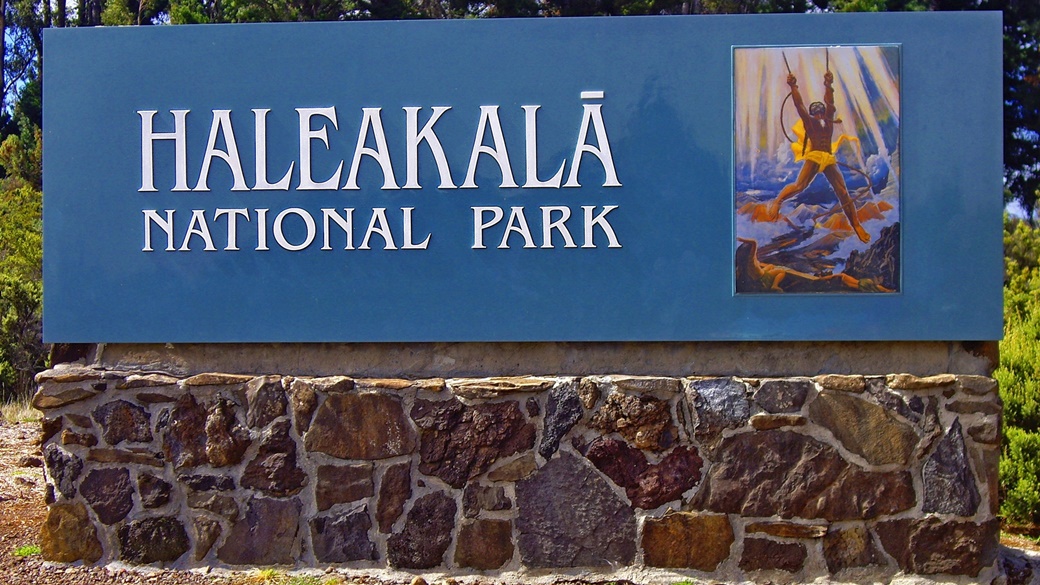
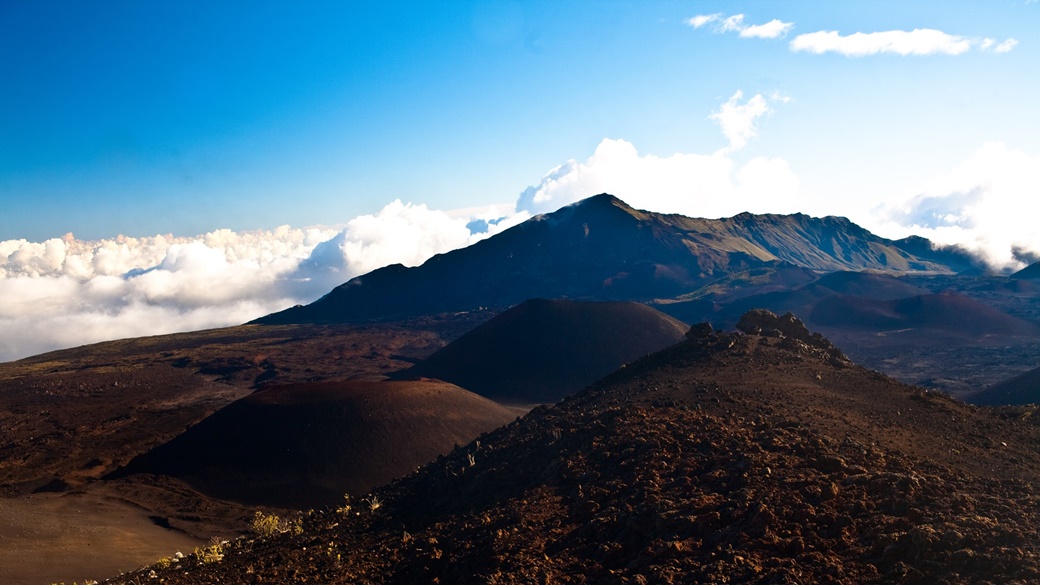
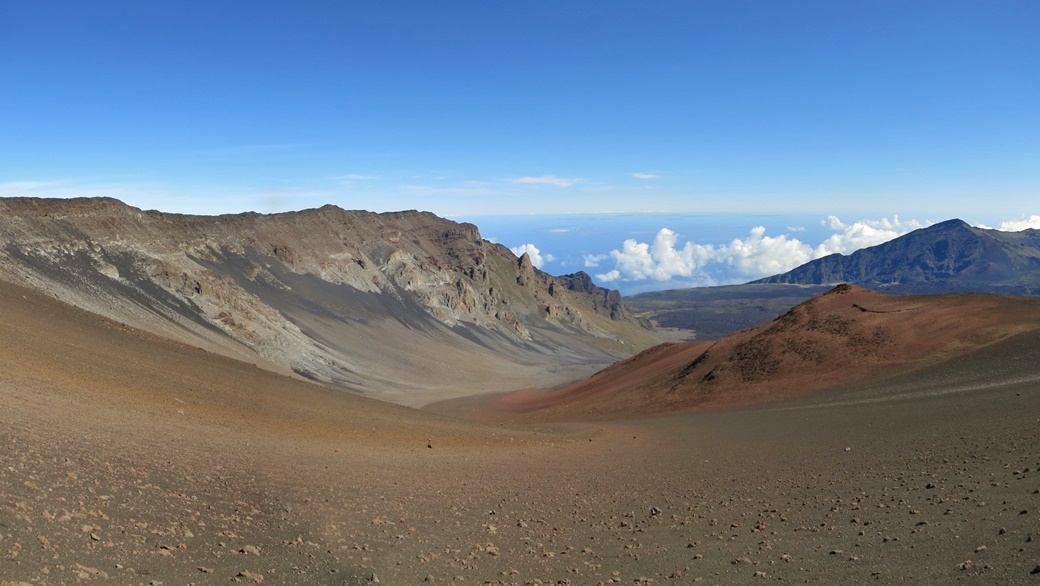
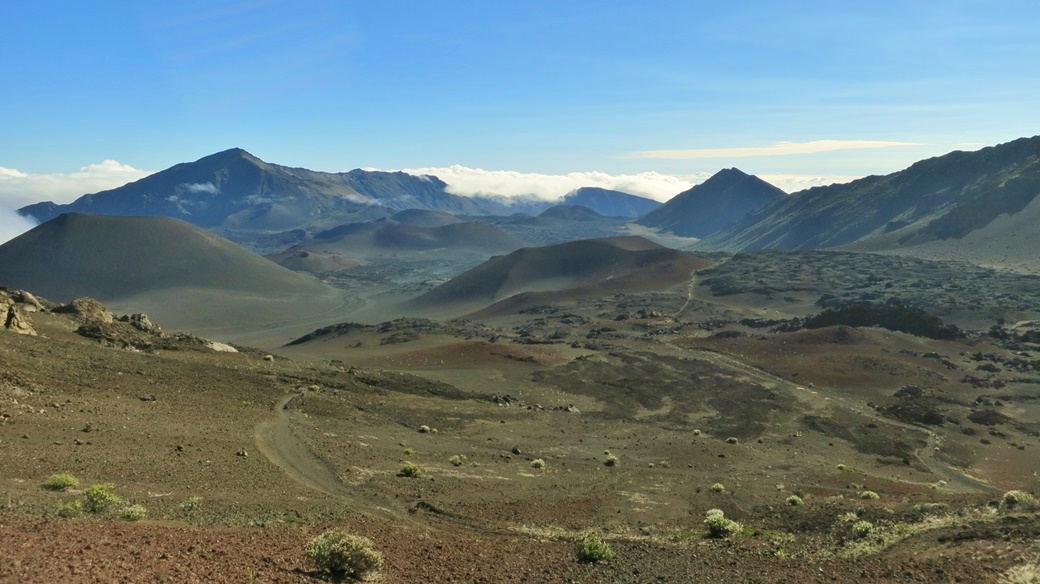

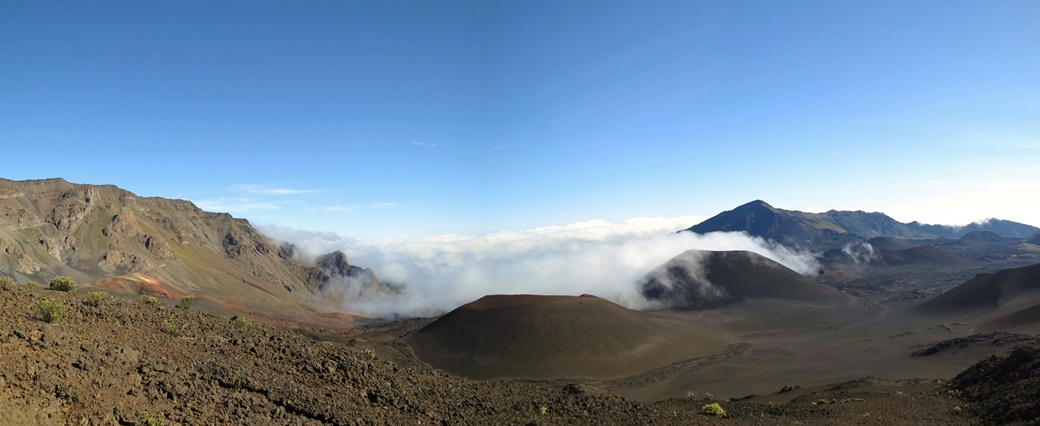
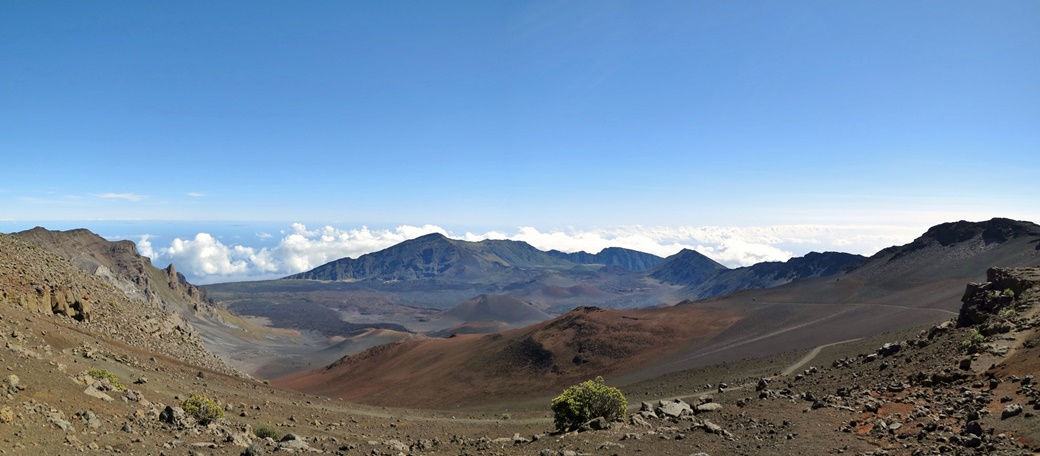
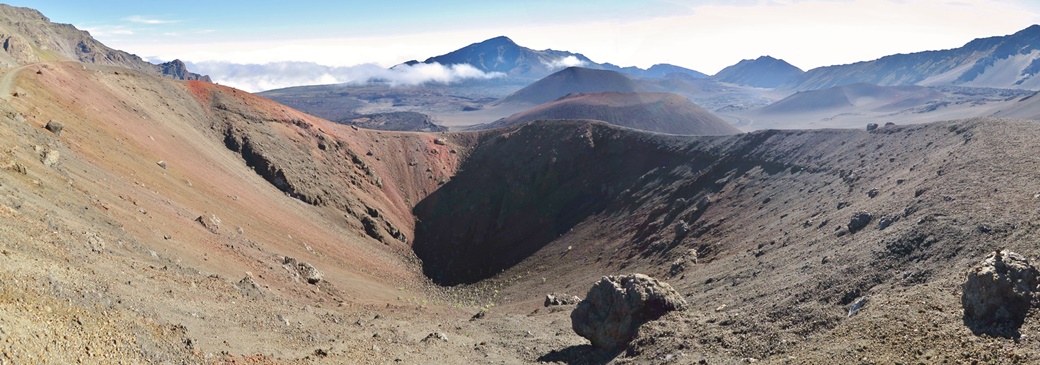
US National Parks
- National Parks of the USA – Map, List and Annual Pass
- America the Beautiful Pass 2025 – How It Works, Cost & Parks
- Timed-Entry Reservation for US National Parks (2025 GUIDE)
Travel Guides to USA National Parks

 10 Best Photo Places in the USA
10 Best Photo Places in the USA




Contribute with Your Question or Personal Experience